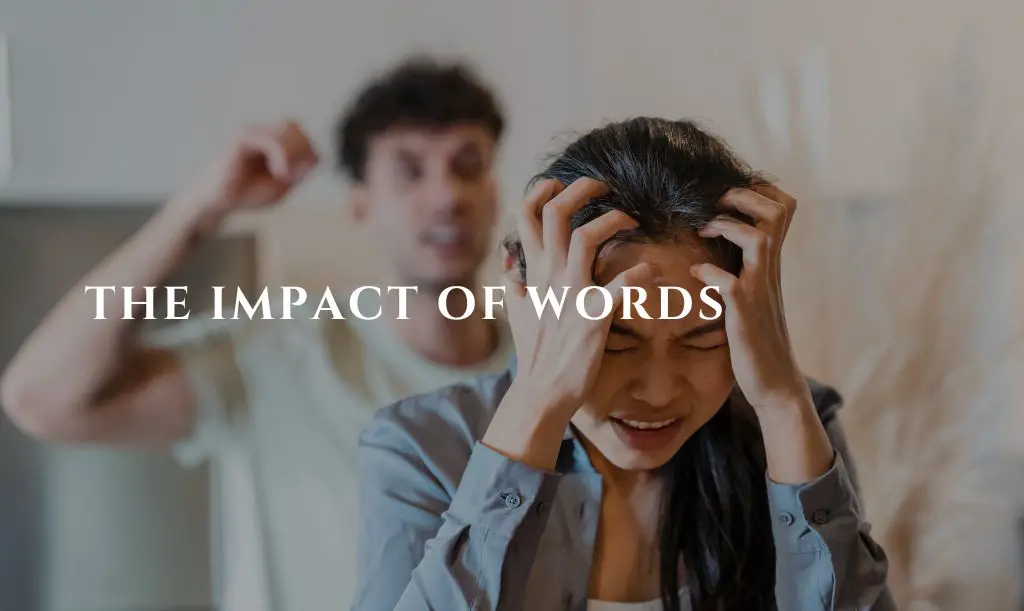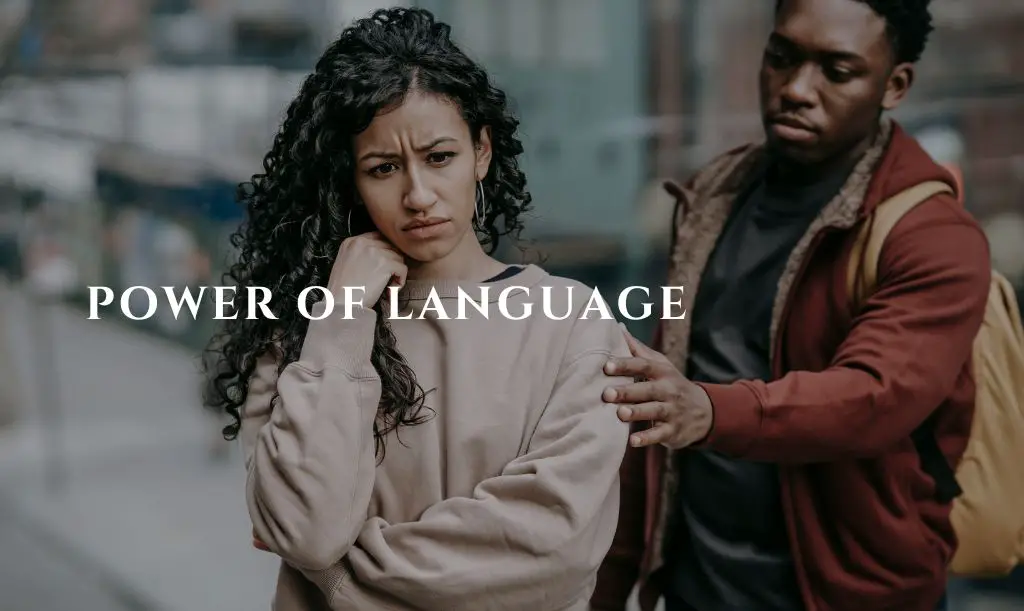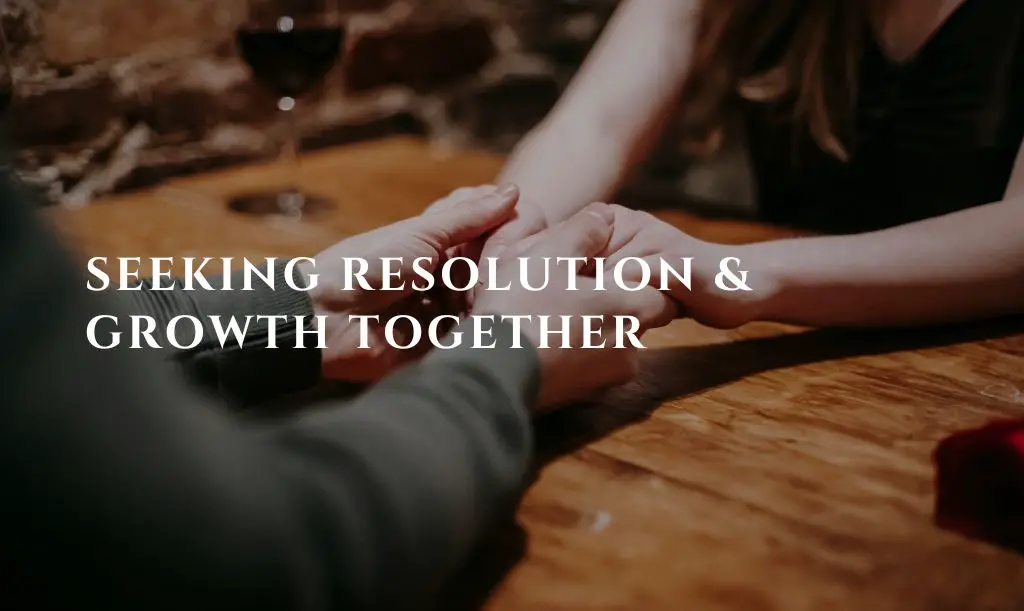‘My boyfriend called me stupid!’ What should I do?’
In the intricate tapestry of human connection, I’ve found that communication serves as the lifeblood that sustains and nourishes relationships.
Its power lies not only in conveying information but also in shaping our emotions and perceptions.
Language, with its ability to uplift or wound, can be a double-edged sword within the realm of romantic partnerships.
This article seeks to explore a distressing incident—one where your boyfriend called you “stupid”—and unravel the profound complexity that lies beneath such words.
The Impact of Words on Emotional Well-being and Relationship Dynamics

We often underestimate just how powerful words can be.
They have an unparalleled ability to shape our perceptions and influence our emotional well-being.
When spoken within a relationship context, their impact extends even further; they become intricate threads woven into the fabric that holds us together.
The words we choose have profound consequences for both individuals involved in any exchange.
Whether uplifting or degrading, they leave an indelible mark on our psyches that echoes long after they are spoken.
A Constant Battle: Uplifting or Degrading?
Consider the emotional resonance of a simple phrase such as “I love you.”
Uttered with sincerity, it can elicit feelings of warmth and security, affirming the bonds of affection.
Conversely, words that belittle or degrade can slice through our souls like a finely sharpened blade.
Words have the power to shape our self-perception and impact our emotional well-being.
If consistently exposed to derogatory language, one’s sense of self-worth can crumble like a fragile porcelain vase.
The more we hear hurtful words from those we love, the harder it becomes to believe in our own value.
The Fragile Tightrope: Striking a Balance
Communication in relationships is an intricate tightrope walk between authenticity and empathy.
It requires us to express ourselves honestly while being aware of the potential consequences of our words.
Careless insults thrown in moments of anger or frustration can send shockwaves through the foundation of trust we strive so hard to build.
We must remember that words are not mere tools for expression; they are instruments for connection.
They hold within their syllables both immense power and tremendous responsibility—a responsibility to nurture and uplift rather than tear down.
Understanding the Context

To truly comprehend why your boyfriend called you “stupid,” we must explore the circumstances that led to this unfortunate incident.
Relationships are not static; they are ever-evolving ecosystems where both partners constantly negotiate their roles and needs.
Within these intricate webs lie inherent power struggles that can manifest in unexpected ways.
In this case, it is crucial to assess the dynamics between you and your boyfriend.
Are there patterns of power imbalance?
Do one or both of you try to assert dominance over the other?
These questions might lead us down an uncomfortable path of self-reflection, but only by acknowledging such truths can we begin to unravel the complexities at play.
Emotional States and External Stressors: The Volatile Ingredients in Relationship Chemistry
When emotions run high, rationality often takes a backseat – like a challenging piece of music where dissonance reigns supreme.
Your boyfriend’s use of such an offensive term might stem from a whirlwind of emotional turmoil within him.
Frustrations from external stressors can act as catalysts for outbursts that seem disproportionate or unwarranted.
Digging deeper into his emotional state at that moment can provide valuable insight into his actions.
Could it be that he was feeling unheard or overwhelmed at work?
Perhaps financial burdens were weighing heavily on his mind?
It is essential not to dismiss these external factors as mere excuses but rather as potential clues to understanding why he resorted to such hurtful language.
Let us also remember your emotional state during this encounter – fragile yet resilient in its own right.
Were you already carrying emotional baggage from past incidents?
Did the weight of insecurities or self-doubt cloud your judgment and amplify the impact of his words?
Examining your own emotional landscape will help shed light on how your response may have interplayed within this dynamic.
Through a comprehensive analysis of the relationship dynamics and the emotional states that influenced the incident, we begin to peel back layers of complexities.
My Boyfriend Called Me Stupid: Exploring Different Perspectives
Imagine the tangled web of emotions and thoughts that must have been raging through your boyfriend’s mind when he uttered those hurtful words.
While it may be tempting to label him as heartless, it is crucial to take a step back and try to understand the factors that contributed to his ill-chosen remark.
Perhaps he was engulfed in a whirlwind of stress from work or personal issues, causing his emotional equilibrium to teeter on the brink of collapse.
In these moments, rational thinking often takes a backseat, and impulsive reactions rule the roost.
Unraveling His Emotional State And Triggers
To truly grasp why your boyfriend resorted to calling you “stupid,” we must dive deep into the labyrinthine caverns of his emotional state.
Was he feeling overwhelmed?
Inadequate?
Frustrated by external pressures that were gnawing at his soul like ravenous wolves?
Perhaps there were underlying triggers at play—past experiences or traumas—that ignited this unfortunate outburst.
By unraveling these layers of emotions, we can gain insight into what drove him to utter such hurtful words.
Analyzing Potential Underlying Insecurities Or Frustrations
Insecurity can often manifest in peculiar ways within relationships, leading individuals to lash out at their loved ones unintentionally.
Could it be possible that your boyfriend’s comment stemmed from an internal struggle with self-doubt?
Were there unresolved frustrations lurking beneath the surface, making it difficult for him to express himself clearly without resorting to insults?
By analyzing these potential insecurities and frustrations, we can better comprehend why such hurtful words escaped his lips.
Reflecting On Your Own Response To Being Called “Stupid”
In times of emotional turmoil, it is only natural for us to be swept up in a tempest of emotions when faced with hurtful remarks from those we care about.
Your initial reaction to being called “stupid” is a crucial aspect to reflect upon.
Did you respond with anger, tears, or perhaps stoic silence?
Understanding your own emotional response and the significance it holds allows for deeper introspection into your relationship dynamics.
It opens the door to exploring how this incident taps into your own vulnerabilities and insecurities.
Initial Emotional Reaction And Its Significance
The immediate emotional reaction triggered by such a degrading comment can reveal volumes about our individual sensitivities and triggers.
Did you feel anger course through your veins like molten lava, scorching any remnants of affection you may have held?
Or did an overwhelming wave of hurt crash against the shores of your soul, leaving behind fragmented pieces of self-esteem that were once whole?
Recognizing the power that these emotions hold over us allows for profound self-awareness and fuels our journey toward healing.
Self-Reflection On Personal Vulnerabilities And Insecurities
Now is the time for introspection.
To truly decipher the impact of being called “stupid,” we must gaze inward at our own vulnerabilities and insecurities.
What wounds from past experiences might still linger beneath the surface?
Have there been instances where our sense of self-worth has wavered?
By delving into these core aspects of our being, we unlock the potential for growth; embracing our vulnerabilities becomes an act of resilience, allowing us to navigate relationships with newfound strength and compassion.
The Power of Language in Relationships

Words possess an extraordinary ability to shape our world, particularly within the fragile realm of relationships.
How we choose our words determines whether they become lethal weapons that wound and lacerate, or catalysts for growth that nurture and uplift.
In the case of being called “stupid” by your boyfriend, there is no denying the immense impact his choice of language had on your emotional well-being.
It is essential to explore how such hurtful words can leave lasting scars on one’s self-esteem and the subsequent erosion of trust and intimacy within a relationship.
Examining the Long-lasting Effects of Hurtful Words
Hurtful words have a way of etching themselves deeply into our psyche, leaving emotional scars that may never fully heal.
When confronted with being labeled “stupid,” it is perfectly normal to experience a profound blow to your self-esteem.
Such derogatory remarks gnaw at the very core of our identity, planting seeds of doubt and self-deprecation in our minds.
These wounds fester over time, shaping how we perceive ourselves and influencing our interactions with others.
Furthermore, trust issues inevitably arise when such hurtful language becomes part and parcel of a relationship dynamic.
The erosion of trust is like a slow poison seeping into every aspect of the partnership—undermining confidence in one another’s intentions and breeding resentment.
After all, how can we feel secure opening up to someone who has belittled us?
Trust becomes fragile as doubts creep in, creating an emotional chasm that strains even the strongest bonds.
Communicating Effectively for a Healthier Relationship
Effective communication lies at the heart of any healthy relationship—a skill often overlooked but paramount for its longevity.
To counteract the negative effects of hurtful words, it is imperative to explore alternative ways of expressing ourselves.
Active listening, a cornerstone of effective communication, goes beyond mere hearing; it involves genuinely understanding the emotions and perspectives behind the words.
Empathy plays a pivotal role in fostering understanding within relationships.
By putting ourselves in our partner’s shoes, we can better appreciate their experiences and struggles.
Validating their feelings instead of dismissing or trivializing them creates an environment where open dialogue can flourish.
Non-judgmental responses allow for vulnerability and honesty without fear of being attacked or ridiculed.
Encouraging open dialogue without resorting to insults is a skill that requires practice and patience.
It means consciously avoiding demeaning language during conflicts and disagreements.
Instead, focus on expressing your concerns and needs while maintaining respect for your partner’s point of view.
Remember, communication should be a bridge that connects hearts rather than a weapon that tears them apart.
Seeking Resolution & Growth Together

Conflict is the thorny path we must tread in any relationship.
But fear not, for there is a way to emerge from this battle unscathed. It begins with compassion.
When engaged in a disagreement with your significant other, it’s crucial to approach the situation with empathy and understanding.
Instead of hurling accusations and insults like fiery arrows, opt for a kinder approach.
Listen attentively to their perspective and validate their feelings.
By showing compassion, you create an environment where both parties feel heard and respected.
Strategies For Constructive Conversations
Constructive conversations are like intricate dances; every step matters.
The first technique to master is using “I” statements instead of accusatory language.
Express how you feel rather than pointing fingers – it’s remarkable how this simple change can defuse tension instantaneously.
Additionally, strive to find common ground through compromise.
Remember that relationships are not about one person being right and the other wrong; it’s about finding solutions that benefit both individuals involved.
Finding Common Ground Through Compromise
Compromise is the essence of harmonious coexistence! It requires an open mind and willingness to seek middle ground where both partners can find satisfaction and solace.
It may entail adjusting expectations or priorities but remember: compromising does not equate to sacrificing your happiness or values entirely; it signifies finding balance within the relationship.
Rebuilding Trust Through Positive Actions
When trust has been chipped away by hurtful words, rebuilding it requires conscious effort from both sides.
Actions speak louder than words – cliché though it may sound – as they have the power to mend what once seemed irreparable.
Small gestures of kindness, understanding, and support can go a long way in reestablishing trust.
Show up for each other, be consistent in your actions, and allow time to heal wounds.
Remember, trust is a delicate flower; it takes time to bloom.
My Boyfriend Called Me Stupid: Conclusion
In the intricate dance of communication and conflict resolution within relationships, no step is without consequence.
The power of words can either ignite flames that consume love or serve as the foundation for growth and understanding.
By navigating conflicts with compassion, utilizing constructive conversation strategies, finding common ground through compromise, and rebuilding trust through positive actions, we can transcend hurtful moments and emerge stronger than ever before.
Remember that every stumble can be an opportunity to learn and grow together as a couple.
Related Articles:
- https://lovebridgeguides.com/how-long-should-a-coffee-date-last/
- https://lovebridgeguides.com/my-boyfriend-took-me-off-his-lock-screen/
- Does A Prom Date Mean Anything? (Answered!) - 20 February 2024
- Boyfriend Refers To Me In Third Person (Explained!) - 20 February 2024
- Is Sending Memes Flirting? Find Out Here! - 20 February 2024

